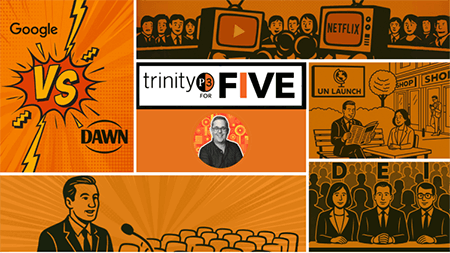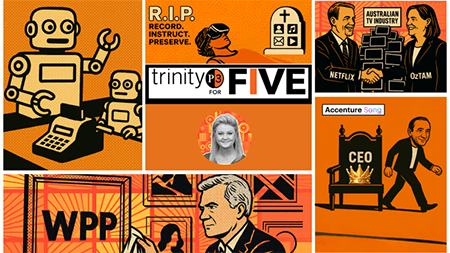TrinityP3 for FIVE Newsletter
The five essential stories of the week and why they matter

Each week TrinityP3 curates the TrinityP3 for FIVE newsletter which gives you the five things you should read this week. The newsletter is a digest which comes every Sunday and gives you five minutes of reads to prepare you for the week ahead.
Our Latest Podcast:

Managing Marketing: Transforming Marketing Charity – The Sydney Children’s Hospital Foundation
Kate Ferguson, CMO of the Sydney Children's Hospital Foundation, discusses the transformative strategies implemented there, focusing on integrated fundraising efforts, emotional storytelling, and innovative partnerships. She highlights the significant impact of their campaigns, the importance of connecting with donors through authentic narratives, and the future aspirations for pediatric healthcare. Additionally, ...









